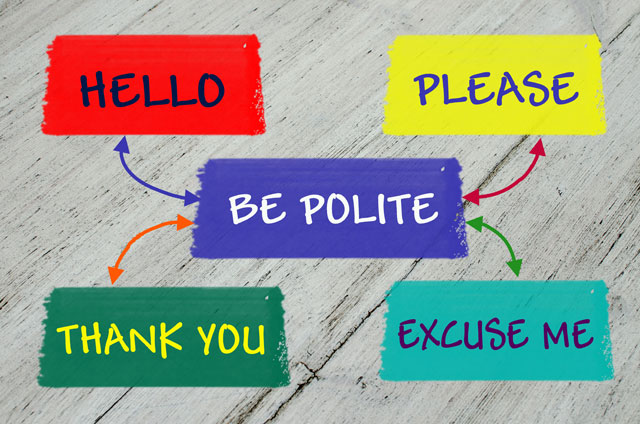Course Description
Grant Writing: The Art of Securing Funding
Connecting Funding Seekers with Grant Providers
Every day, a vast number of organizations and individuals look for funding opportunities, while others are in search of promising projects to fund. This includes entities ranging from individuals, foundations, and corporations to governmental bodies. With so many potential matches to be made, there's a growing demand for skilled individuals who can bridge the gap between those who need funds and those who can provide them. This is where the art of grant writing and match-making becomes invaluable.
However, to effectively navigate this landscape, one must first grasp the nuances and intricacies of the grant application process. This entails more than just writing – it demands a deep understanding of the motivations, objectives, and requirements of both the seekers and providers of grants.
Decoding the Title: Grant Writer
Though commonly used, the title "grant writer" is somewhat of a misnomer. No one truly "writes grants." Instead, individuals draft grant proposals, formal written requests for financial support. On the flip side, the entities that provide the funding draft the grant agreements and disburse the funds.
Despite this technical distinction, the term "grant writer" has become a universally accepted descriptor for individuals who specialize in crafting compelling proposals. Beyond writing, a grant writer plays a pivotal role in understanding the philanthropic ecosystem, researching grant opportunities, selecting appropriate grants to pursue, and devising innovative solutions to problems.
Unpacking Grant Proposals
A grant proposal is essentially a structured appeal to potential funders, articulating why a particular project or initiative deserves financial support. These proposals typically encompass a narrative, requisite forms, and supplementary documents to bolster the case being made.
While grants are often directed towards nonprofit organizations, recognized as 501(c)(3) by the Internal Revenue Service, individuals can also be recipients, albeit indirectly. In such cases, individuals must route their funding needs through nonprofit entities, which then secure the necessary funds via grants.
Furthermore, the world of grant writing extends beyond just grants. It also encapsulates contract bids and cooperative agreements, all of which follow similar guidelines and principles.
Mastering the Language of Grants
Just as every profession has its jargon, so does grant writing. Fluency in this specialized language, colloquially referred to as "Grant-ese", is indispensable. Misunderstandings or misuse of terms can not only lead to confusion but also jeopardize the chances of a proposal being accepted.
To ensure our students are well-equipped, our course materials will include a comprehensive glossary and references to deepen their understanding. Mastery over this language, presented with clarity and confidence, can make the difference between a proposal's acceptance or rejection.
Identifying Potential Grant Seekers
While "grant seekers" typically refers to entities seeking funding, it's crucial to note that the term also encompasses those looking to allocate funds. Such benefactors might be striving to elevate their community presence, enjoy tax advantages, or fulfill other objectives.
Grant writers can find employment opportunities across a diverse spectrum – schools, hospitals, emergency services, religious institutions, universities, museums, and arts organizations, to name a few. All these entities continuously scout for proficient grant writers to boost their funding capabilities.
Your Target Audience
The vast majority of grant writers cater to the nonprofit sector. This market includes:
- Social service organizations
- Educational institutions, from elementary schools to universities
- Health care entities like clinics and hospitals
- Local governmental units
- Emergency services like fire and police departments
- Cultural organizations including arts groups and public media outlets
Essential Skills for Success
To excel in grant writing, one needs more than just linguistic prowess. Empathy for the recipients, punctuality, meticulous attention to detail, and analytical skills are paramount. It's essential to empathize with reviewers, respect timelines, and scrutinize instructions and questions meticulously.
Navigating the Granting Process
The quest for grant funding typically follows one of two routes: aligning a project with a funder's guidelines or responding directly to a Request for Proposal (RFP). Regardless of the approach, adherence to instructions and guidelines is critical.
A Glimpse into History
Historically, the U.S. has been lauded for its philanthropic spirit, a legacy dating back to Native Americans and early settlers. The federal government formalized this spirit in 1913, using income tax to fund projects nationwide. Today, governmental agencies play an active role in identifying projects worthy of public support, primarily via the RFP process.
Course Overview
Our course, segmented into 16 meticulously crafted lessons, offers a comprehensive dive into the world of grant writing. From understanding basics, discerning what makes a successful proposal, to mastering the submission process and reporting successes, we cover every facet of this dynamic field.
Join us on this journey and harness the power of grant writing, an art form that holds the potential to bring dreams to life.
- Completely Online
- Self-Paced
- Printable Lessons
- Full HD Video

- 6 Months to Complete
- 24/7 Availability
- Start Anytime
- PC & Mac Compatible
- Android & iOS Friendly
- Accredited CEUs

Learning Outcomes
- Define grant proposal and describe the basic purpose of writing one.
- Summarize which projects and proposals will be funded and why.
- Summarize the best places to find money for grant projects.
- Summarize the key working components of a grant proposal.
- Describe what action plans are, why they are important, and how to establish their timelines.
- Design, establish and utilize an appropriate evaluation plan.
- Demonstrate how to write an appropriate budget for a grant proposal.
- Create a cover letter and complete the application.
- Summarize the types of reporting required when landing a grant.
- Demonstrate mastery of lesson content at levels of 70% or higher.
Assessment Guide
| Assessment | Points |
|---|---|
| Lesson 1 Assignment: Why Grant Writing? | 2 points |
| Lesson 1 Exam | 13 points |
| Lesson 2 Assignment: Defining Success | 2 points |
| Lesson 2 Exam | 14 points |
| Lesson 3 Assignment: What Makes a Good Grant Writer? | 5 points |
| Lesson 3 Exam | 14 points |
| Lesson 4 Assignment: Funding Your Organization | 10 points |
| Lesson 4 Exam | 14 points |
| Lesson 5 Assignment: Identifying Trends | 5 points |
| Lesson 5 Exam | 13 points |
| Lesson 6 Assignment: The Mission Statement | 5 points |
| Lesson 6 Exam | 14 points |
| Lesson 7 Assignment: Writing an Action Plan | 5 points |
| Lesson 7 Exam | 12 points |
| Lesson 8 Assignment: Program Evaluation | 5 points |
| Lesson 8 Exam | 13 points |
| Lesson 9 Exam | 15 points |
| Lesson 10 Exam | 14 points |
| Lesson 11 Assignment: Develop a Timeline | 2 points |
| Lesson 11 Exam | 15 points |
| Lesson 12 Assignment: Creating a Budget | 2 points |
| Lesson 12 Exam | 15 points |
| Lesson 13 Exam | 15 points |
| Lesson 14 Exam | 14 points |
| Lesson 15 Assignment: Format Preference | 2 points |
| Lesson 15 Exam | 12 points |
| The Final Assignment | 15 points |
| Lesson 16 Exam | 13 points |
| The Final Exam | 62 points |





































